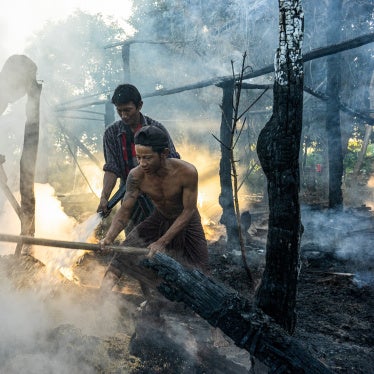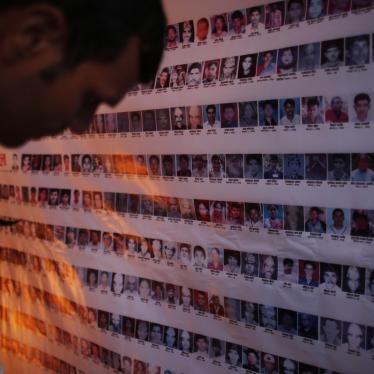Some forty-five civilians were reported killed and more than one hundred wounded after the army opened fire on protestors near Lhokseumawe, in North Aceh on May 3, 1999. The death toll could well rise. The army claimed they had used only rubber bullets and had fired in self-defense after shots were fired at their troops. Hospital sources reported that the victims, who ranged in age from seven to sixty, had been shot with lead bullets, and villagers said the army opened fire without warning. Video footage showed soldiers shooting at fleeing protestors.
The shootings are the latest in a series of violent incidents in and around Lhokseumawe that began in late August 1998. The violence is the result of an explosive mixture of several factors: local anger at the failure of the Habibie government to address the issues of past military abuses in the area; increased activity in the Lhokseumawe area of two groups, the insurgent group, Gerakan Aceh Merdeka (the Free Aceh Movement, known as GAM) and a separate, nonviolent, and fast-growing movement aimed at securing a referendum on Aceh's political status; and the excessive use of force and commission of grave human rights abuses by the Indonesian army, partly in response to that activity. As with all political unrest in Indonesia, there is widespread belief locally but little hard evidence that military elements are provoking the violence.
Aceh, unlike East Timor, is critical to the survival of Indonesia as a nation. East Timor was never part of the Indonesian nationalist struggle, and its departure from the Indonesian republic, to which it was illegally annexed in 1976, will not shake the concept of Indonesian nationhood. Aceh was not only at the forefront of the nationalist struggle against the Dutch colonial government, but it is vital to Indonesia politically, strategically, and economically. If violence continues to escalate and demands for independence grow stronger, the government in Jakarta will face immensely difficult choices. At this stage, the only conceivable way to try halting the unrest is to ensure that military abuses dating back to 1990 and going up to May 3 are fully and transparently investigated and prosecutions initiated.
This report outlines the details of the May 3 shooting and the key events that have led to rising violence in Aceh. Much of the information is based on a visit to Lhokseumawe in February 1999, with additional information obtained from local human rights organizations.
Recommendations
Human Rights Watch calls on the Indonesian government to invite to Aceh as soon as possible the United Nations Special Rapporteur on Summary and Arbitrary Executions and the U.N. Working Group on Disappearances, to examine the causes, context, and consequences of the May 3 massacre as well as past extrajudicial executions, including the Idi Cut killings of February 2 and 3, outlined below. An invitation to the special rapporteur is particularly urgent, as past visits of U.N. human rights specialists, such as the Working Group on Arbitrary Detention in February 1999 and the Special Rapporteur on Violence Against Women in November 1998, did not include visits to Aceh.
We also call on the government to form both a joint fact-finding team, similar to the one appointed after the May 1998 violence in Jakarta, and a military honor council, to work together to more clearly identify the units and individuals involved in the shootings and initiate prosecutions as warranted. The two teams should also investigate the series of incidents beginning in August 1998 that have led to such a dramatic and tragic escalation of violence in Aceh.
The government should cancel plans agreed to in February 1999 to form a new regional military command for Aceh, known as Kodam Iskandar Muda, and work toward reducing, not increasing, army troop strength in Aceh.
Finally, in light of Acehnese outrage of the impunity the military enjoys for past violations of human rights, the govenrnment should take concrete steps to gather evidence against key officers in the military chain of command responsible for abuses during the period 1990-1998 and begin formal prosecutions without delay.







